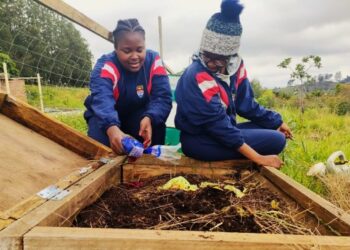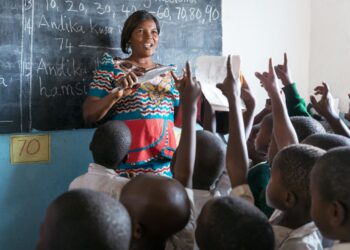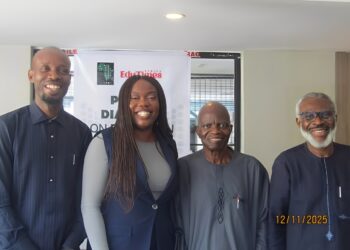
Education has become the most powerful agent of change that is essential to the success of the 17 Sustainable Development Goals (SDGs). The ability to generate and execute transformative ideas are key to achieving success in the education sector. In recent years, we have observed the commitment of Nigeria towards achieving SDGs that are related to education, equality and sustainability. SDG 4, which is the enabler of the other SDGs, seeks to ensure inclusive and equitable quality education for all across the world. Achieving SDG 4 is significant, where the state of our education is daunting, despite the efforts of the government, private sectors and international donors towards addressing the issues facing education in Nigeria. To achieve quality education in Nigeria, there must be a rethink of pedagogical approaches and contents of the curriculum. Can we transform our educational institutions through pedagogical approaches and contents? Do networks such as UNESCO ASPnet have the structure that can support institutions to attain equitable quality education?
UNESCO Associated Schools Network (ASPnet) is a global network that plays a crucial role in improving the quality of education, stimulates innovative approaches to education and emphasizes the four pillars of education for the 21st century.
Its policies and practices are focused on transformative pedagogies, inclusive learning environments, intercultural understanding, and equipping young people to become agents of change, global citizens and peace builders. Its visibility in Nigeria has helped to create a sense of community among schools by sharing best practices and exchanging ideas. ASPnet in Nigeria is involved with organizing training programmes for teachers to enhance their knowledge and skills in delivering Education for Sustainable Development (ESD). The initiative equips teachers with innovative pedagogies and resources to engage students in critical thinking and problem-solving that are related to sustainable development. They are empowered to integrate sustainable development concepts by incorporating themes such as climate change, biodiversity, inequality, social justice, respect for diversity and human rights into subjects that are taught in the classrooms.
ASPnet facilitates student exchanges and collaborative projects between member schools in Nigeria and other countries, which provides a platform for students to engage in cross-cultural dialogue and exchange. It actively promotes environmental conservation by organizing tree planting campaigns, waste management initiatives, awareness programs on climate change and biodiversity conservation. It instills a sense of environmental stewardship and encourages students to take action for a sustainable future. Has the network made an impact since its establishment in Nigeria?
ASPnet activities are carried out through awareness campaigns, workshops and projects to educate students about the 17 SDGs and encourage their active participation. Member schools engage in activities such as, creating school gardens to promote organic farming, waste management and recycling programs, that not only raise awareness among students on the importance of protecting the environment, but prepare them for the challenges of the 21st century by taking actions towards sustainability. Schools are encouraged to adapt the Education for Sustainable Development (ESD) principles into their daily activities, which is paving the way for a greener and sustainable future.
Through student exchanges and collaborative projects, ASPnet fosters intercultural understanding and global citizenship that promotes tolerance, appreciation for diverse cultures, and contributes to social harmony and peaceful coexistence. Through dialogue sessions, students learn about conflict resolution strategies, human rights, and intercultural dialogue that fosters a culture of peace and social cohesion. Member schools organize events that celebrate UNESCO’s International Days, Nigeria’s rich cultural heritage and promote dialogue among students which in turn contributes to the development of an inclusive and harmonious community in Nigeria.
The network helps students develop critical thinking, problem-solving and leadership skills to engage in community service and advocate for sustainable development that addresses local/global challenges. By embedding these principles, ASPnet is nurturing a new generation of Nigerian youths who are committed to sustainable development and social progress.
To achieve transformative institutions, Nigerian educational institutions must look beyond the conventional pedagogical approaches for change to occur. The answer to the question asked earlier is, Yes. It is clear that ASPnet contributes to the development of education and responsible global citizens. Its impact in Nigeria schools serves as a testament to the importance of education in addressing social challenges and building a sustainable future that extends beyond the classrooms.


















































































 EduTimes Africa, a product of Education Times Africa, is a magazine publication that aims to lend its support to close the yawning gap in Africa's educational development.
EduTimes Africa, a product of Education Times Africa, is a magazine publication that aims to lend its support to close the yawning gap in Africa's educational development.
Good Day!
It’s interesting to know this educative platform.My boy graduated with good grade yet unable to secure job in his specialization.
Proper councelling is required for the parent at on set to Taylor their wards toward their instrict or in-born skills.
Thank you very much for reaching out to us. And thank you for the commendation. Yes, parents need to be well informed so that they can advise their children effectively. Please find time to visit our website http://www.edutimesafrica.com and then scroll down to Career Counselling. You will find many articles with useful tips there that will help you and your child. We wish you and your son the best.